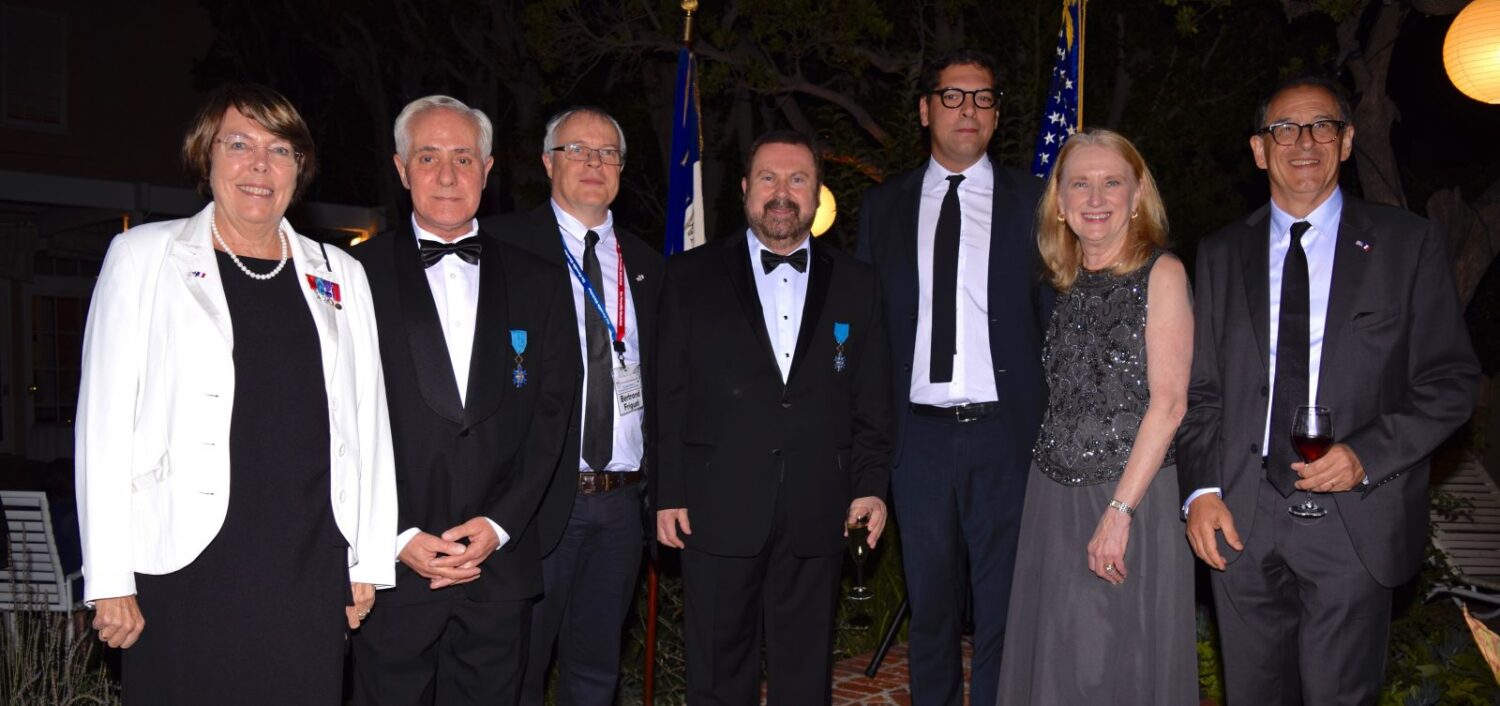French and American experts discussed the roles of free radicals and oxidative stress in heart disease, cancer, Alzheimer’s disease and other aging-related conditions during a “ParadOx Workshop” October 13-16.
Held at the Moseley-Salvatori Conference Center of the Good Samaritan Hospital of Los Angeles, the workshop explored the Oxygen Paradox, the French Paradox, and the roles free radicals and oxidative stress play in diseases of aging as well as the aging process itself.
“The Oxygen Paradox is simply the fact that, although oxygen is required for human life, it is also extremely harmful because of the free radicals and other oxidants generated by metabolism, radiation, and environmental toxicants: a problem often referred to as ‘Oxidative Stress,'” said USC Leonard Davis School of Gerontology Vice Dean and Andrus Center Director Kelvin Davies, one of the event organizers. “The ‘French Paradox,’ on the other hand, points at an apparent anomaly that the ‘typical’ French diet is relatively high in lipids and cholesterol, yet the incidence of heart attacks and strokes is historically no greater than that seen in the USA. Of course, oxidative stress, poor diets, obesity, and physical inactivity all have long been associated with increased risk of heart diseases, stroke, Alzheimer’s disease and other dementias, and cancer. Similarly, oxidative stress is frequently invoked as a possible causal factor in aging, as evidenced by the popularity of the Free Radical Theory of Aging.”
To explore both clinical and basic science aspects of these issues, Davies and his colleagues set up an invitation-only event, for a mixture of clinicians and basic scientists, with more than 30 participants from the USA (largely USC and Good Samaritan faculty members) and 30 French participants (largely University of Paris – University Pierre & Marie Curie, and Sorbonne faculty). Participants aimed to discuss both new therapeutic approaches and new research findings in the area and to assess both the convergent and divergent trends in disease etiology, disease progression, and prognosis between the USA and France. The Workshop will also generate a position paper on current understanding, future research imperatives, and eventual clinical goals and objectives, to be published in a top-flight biomedical journal, Kelvin Davies added.
The ParadOx Workshop was spearheaded by Professors Joanna Davies and Kelvin Davies, both of the USC Leonard Davis School. Joanna Davies is also Director of the Osteoporosis Center of Los Angeles, and a partner in The Medical Group at the Good Samaritan Hospital. Co-organizers of the Workshop were Professor Enrique Cadenas (USC School of Pharmacy, Keck School of Medicine, and USC Leonard Davis School), Bertrand Friguet (University Pierre & Marie Curie, and the Sorbonne, Universities of Paris, France), and Professors Josiane Cillard and Pierre Cillard (both of the University of Rennes, France). Kelvin Davies and Cadenas were both knighted by the French Republic in 2012, by order of then French President Nicolas Sarkozy, as Chevaliers (Knights) of the l’Ordre National du Mérite de France (National Order of Merit of France).
The organizers were pleased to note the exceptional assistance and cooperation provided by French Consul Général Christophe Lemoine and his scientific attachés, M. Fabien Agenes and Dr. Jean Rosenbaum; by Good Samaritan Hospital President and CEO Mr. Andrew B. Leeka; and by Leonard Davis School of Gerontology Dean Pinchas Cohen. “Without the collaboration and backing of all these leaders, the ParadOx Workshop would simply not have been possible,” Joanna and Kelvin Davies said. Joanna Davies was also pleased to personally thank Mr. George Joseph for his generous support of the Workshop.
Photo: A black tie gala reception and dinner was hosted by M. Christophe Lemoine, Consul Général of France in Los Angeles, at the Résidence de France in Beverly Hills, on Friday, October 14. Shown in the photograph, from left to right, are ParadOx co-organizers Prof. Josiane Cillard (University of Rennes, France), Prof. Enrique Cadenas (USC, Pharmacy), Prof. Bertrand Friguet (University of Paris), Prof. Kelvin Davies (USC, Gerontology), Consul Général Christophe Lemoine, Prof. Joanna Davies (USC, Gerontology & Good Samaritan Hospital), and Dr. Jean Rosenbaum (French Scientific attaché).





